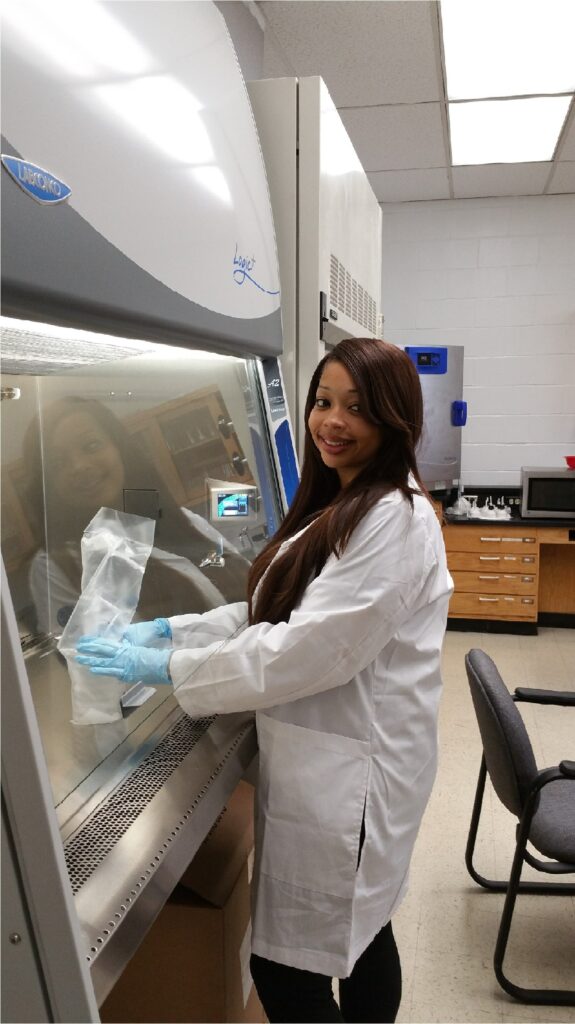
Jocelyn Simmons, a UMES graduate student from New York majoring in food and agricultural sciences, recently co-authored a book chapter with Dr. Simon Zebelo, an associate professor of entomology and plant biology in UMES’ Department of Agriculture Food and Resource Sciences, and Joseph Disi, Department of Entomology, University of Georgia.
Simmons co-authored Chapter 14, Plant Growth-Promoting Rhizobacteria-Induced Defense Against Insect Herbivores, in the book Field Crops: Sustainable Management of PGPR.
The 17-page chapter focused on PGPR-induced defense against insect pests in field crops with emphasis on the mechanism of action involved against insect pests. It examined PGPR-mediated biochemical and physical changes in the host plant that display insect pathogenicity, methods mixtures application, and challenges associated with their use of PGPR in sustainable agriculture.
The findings show that plant growth-promoting rhizobacteria improve plant health and productivity by providing protection to plants from diseases and pests and enhancing plant growth. “PGPR induces systemic resistance against microbial pathogens and herbivorous insects,” Simmons said. “There are limited studies that show the induction of systemic resistance in crop plants against pests.”
“PGPR are important to farmers and the environment because it is an alternative way to combat chemical applications, which have detrimental affects to the ecosystem, beneficial insects, and the environment,” Simmons said. “PGPR enhances crop production by being able to self-replicate and improve productivity and fertility of desired crops.”
Simmons has received three first place awards, a second place award, an entrepreneurship interview, and a poster presentation award for her work in her master’s research. She serves as the president for the Graduate Student Government. She is currently studying how to use PGPR to control corn earworm, one of the key insect pests of sweet corn and field corn. Simmons reports that her master’s thesis generated interesting data on how to use entomopathogens (fungi), a disease that is only detrimental in insect pests that can affect the mortality rate of insect pests such as stinkbugs. She is preparing her results to be submitted for publication.
“Researching about ways of sustainable agriculture has influenced Simmons to find more innovative ways to tackle these dilemmas, which is where this book chapter and her master’s were introduced,” Zebelo said.

